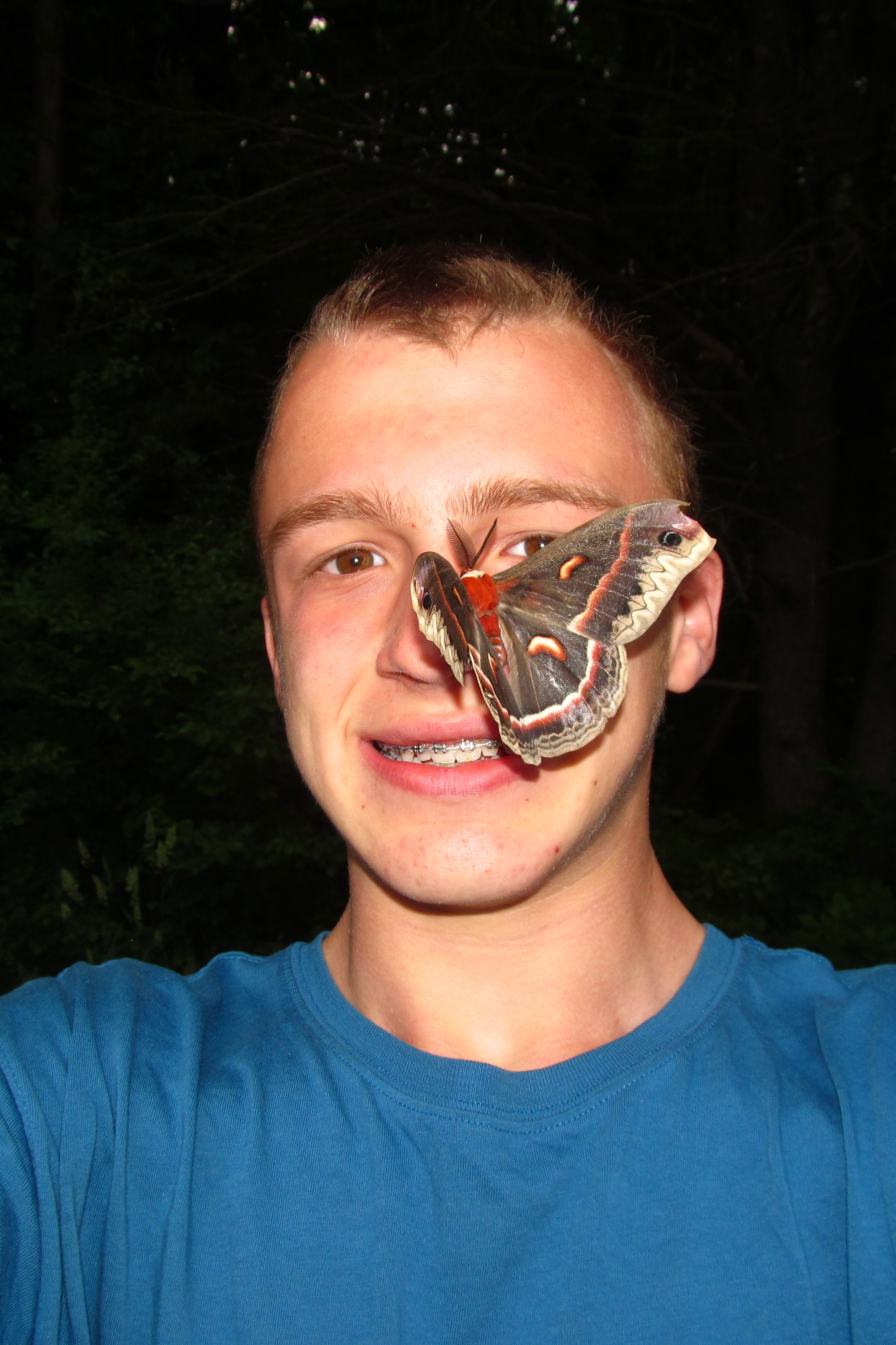
Our newest NMW team member is Jacob Gorneau an upstate-NY native who will serve as our data wizard. Welcome, Jacob!
Jacob Gorneau is a fifteen-year-old amateur naturalist with a love for anything related to biology. He became interested in moths in 2009 when he saw a Black witch (Ascalapha odorata) in Florida and a Polyphemus moth (Antheraea polyphemus) the same year at his home in New York. Jacob started mothing in 2012, but his first full “mothing season” was not until this year. He has documented over 400 unique moth species so far, but is excited to see that number rise! Jacob regularly contributes to Project Noah, where he is known as Jakubko or “J.” He has suggested identifications for over 3,400 spottings and has submitted over 2,800 spottings since he joined in January 2012. Jacob has contributed to the Project Noah blog, and also the ABA Young Birders’ Blog, The Eyrie. When he joined Project Noah, he created a mission for the moths of northeastern North America. This mission was first local, collecting data on the moths of northeastern North America. As it gained popularity, the mission was expanded to include the Americas. The mission was granted a global expansion when the Project Noah team decided to participate in the first annual National Moth Week. Project Noah helped National Moth Week expand to more of a global citizen science celebration rather than an event on the national level. Jacob (with a big thanks to his father!) has been breaking down the data Project Noah receives when one contributes a spotting to his mission. In the first year of Project Noah’s participation, 684 moths were documented all over the world; from Brazil to Bhutan. Project Noah surpassed its goal of 1,000 moths spotted during National Moth Week, which is an amazing indicator of how much National Moth Week and Project Noah have grown together. Jacob is elated to see National Moth Week grow as an organization promoting the beauty and biodiversity of moths, and he also thinks National Moth Week and Project Noah are huge steps towards making citizen science mainstream science. He also thinks that education is the foundation of conservation, and getting people interested in moths is a great way to raise awareness of modern conservation needs. In the future, Jacob would love to study biology, and would even more so love to be a conservation biologist.